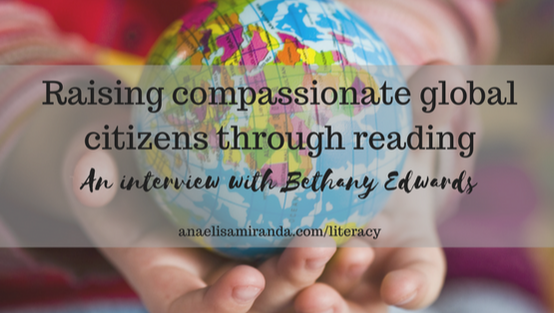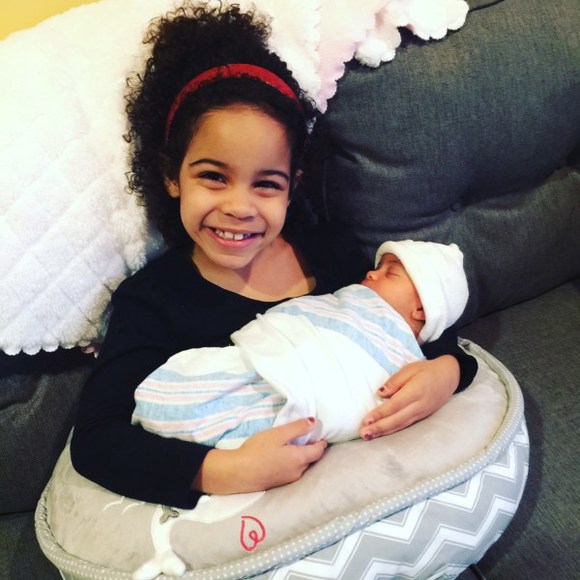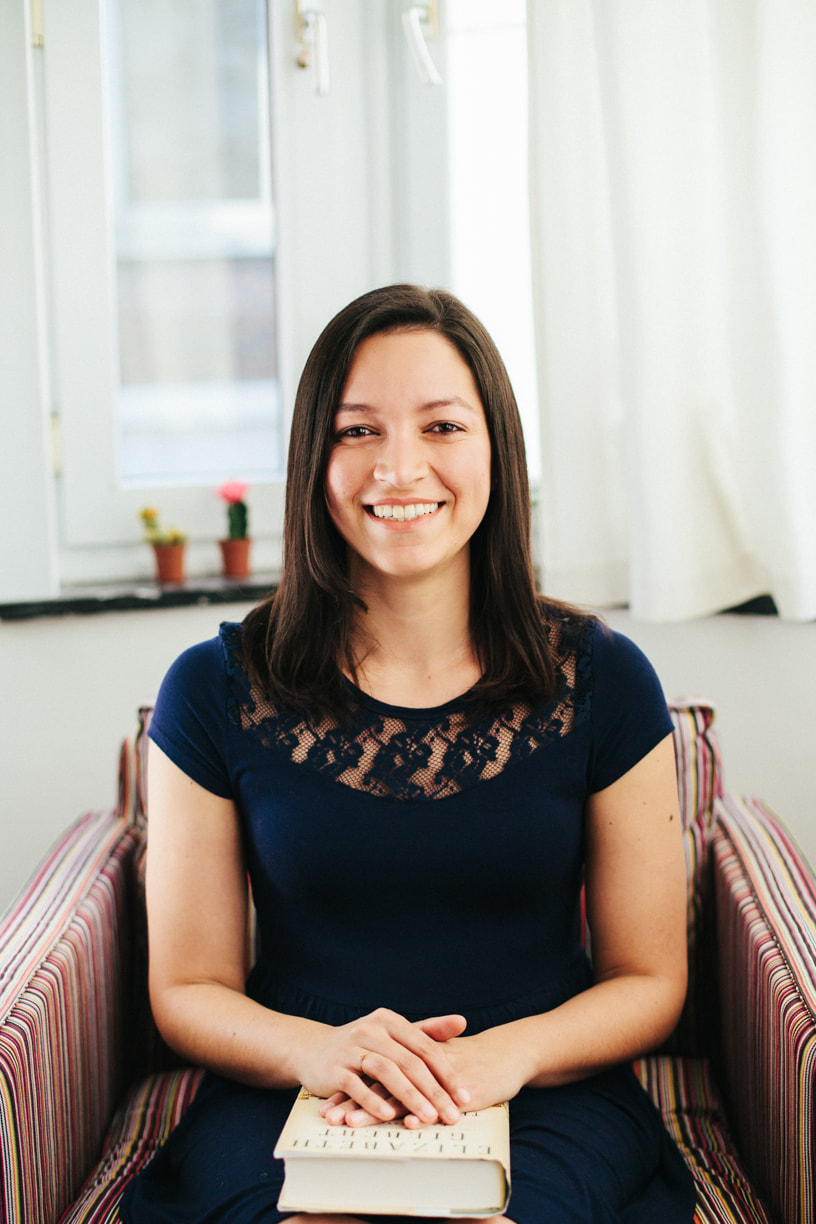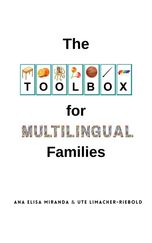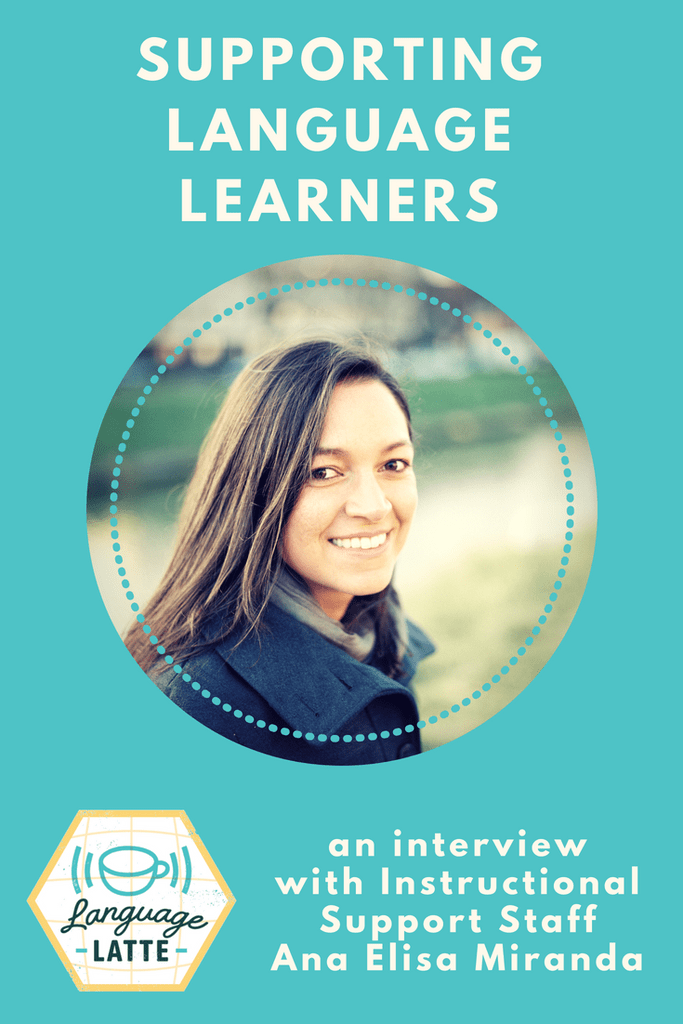Bethany has been a professional educator for the past 12 years. She has taught in California, Turkmenistan, Egypt, Ukraine, Latvia, and Mauritania.
She is currently in Washington, DC writing children’s books and teaching courses for parents, caregivers and teachers online.
She’s the founder of Biracial Bookworms and mother of two little girls. In this interview she shares her experience with multilingualism and literacy.
She is currently in Washington, DC writing children’s books and teaching courses for parents, caregivers and teachers online.
She’s the founder of Biracial Bookworms and mother of two little girls. In this interview she shares her experience with multilingualism and literacy.
Tell us about Biracial Bookworms. How did it start? What are your goals?
My goal is to empower and arm families and teachers with the tools to give children the world through reading, traveling, and learning languages!
My first experience with teaching children to read began in a 1st grade classroom in California. Like many of you, I was forced to figure out how I was going to inspire young children to want to open books and devour not just the words, but discover the world through the pages. I began totally overwhelmed at the responsibility of teaching children to read, and felt like I had more questions than answers for parents.
I currently have two daughters. While I was teaching in international schools overseas, we lived and traveled in many different countries. Most of our experiences were extremely positive, but interracial families were not always accepted. When my oldest daughter started school, she too started experiencing ignorance and racism in her pre-school classes and in the communities where we lived. I decided to take action and create something positive out of these negative interactions.
I am committed to doing everything in my power to create a world where my girls’ mixed ethnicity is celebrated. My ultimate goal is to ensure my girls, as well as all children, know they can conquer anything. I have built my business platform with my own girls as my inspiration.
What benefits do you see in your children from knowing different cultures and languages?
We read with our kids to help them become lifelong readers, but we do it for another reason as well. Well known book character Atticus Finch from To Kill a Mockingbird said “You never really understand a person until you consider things from his point of view… until you climb into his skin and walk around in it.”
To teach your children about different people in history who were everyday heroes will inspire them to change the world. Reading, traveling, learning multiple languages and going places outside of your comfort zone where people share a different opinion than yours can be transforming as well.
You can use words for powerful changes almost instantaneously. How does this happen? The answer I have come up with is emotion. When you appeal to a person emotionally with your words, they can be transformed. Our words have the power to inspire, encourage, as well as motivate our children through books when we use the power of emotion.
A very popular joke I have heard many times in the international communities abroad at both international schools and at social events: “What do you call a person who speaks 3 languages? Trilingual. What do you call a person who speaks 2 languages? Bilingual. What do you call a person who speaks only one language? American.” I am determined to have my kids not be the butt of that joke! :)
We made the choice to prioritize language learning after reading about the science behind the benefits of speaking multiple languages from birth. Specifically, the book Brain Rules for Baby by John Medina, outlined the many cognitive, emotional, as well as social benefits of raising a multilingual child.
Can your oldest daughter read in another language? How do you incorporate that in your daily lives?
Yes, in French (still very much a beginner) and in Spanish. She is in a Spanish immersion school and we do all her math and science homework/games, etc. in Spanish. She also goes to conversational French and Spanish classes with children and adults. We also have neighbors and friends who speak French and Spanish, so she practices on the playground at the park, etc. She is also learning ASL with her younger sister (15 months old).
In your course, you focus on teaching reading to children 0 to 5. Why is it important that parents are aware of literacy at that age?
Many would argue the first 5 years of a child’s life matter the most. The early experiences of a young child shape the course of their lives. We know this, but if you are like me, doing what we know is best for the children in our lives is NOT easy. Sometimes, we need a little help.
This course takes all of the guesswork of teaching a child to read. I show parents and caregivers how to combine speaking, writing reading, listening, to raise a confident and successful reader.
After 12 years of teaching children from all over the world, I had to figure out how to put all my knowledge from my degrees and experience the classroom into action when I got pregnant. That’s when I decided to approach teaching a child to read in a different way. This was largely in part because a mini-version of my stubborn self was staring back at me. I wanted to create a process that would work for any parent to see their child be successful when they started school and not struggle as I have seen so many times in my classroom. This approach is integrating all of the literacy skills together so you have maximum success when you are teaching a child to read.
The guilt we carry as parents and caregivers is real. Nevertheless, I refuse to let those bad days discourage me from my ultimate goals and purpose. The past 5 years of being a parent, I have worked relentlessly to research, learn, and implement the most engaging strategies possible for raising a reader from both. And it worked.
Five years later, I was sending my oldest child to Kindergarten who could confidently read any book I put in front of her. She was reading, writing, speaking, and listening far above grade level. She was immediately placed into advanced classes due to her off the charts scores. Academically and socially, she excelled. Raising compassionate and successful readers; it's what we all dream about, but now I had the joy of seeing it become a reality. I want the exact same for you!
What is the best thing parents can do to support their toddlers' literacy skills?
The key to unlocking a child’s reading ability and potential starts the day they are born. Giving them a rich literacy environment from the moment they come home from the hospital is crucial. And it is not only important to teach kids the HOW, but also WHAT to read.
Through culturally rich experiences, travel, learning multiple languages, and reading GREAT books, you will not only raise readers but empathetic and compassionate global citizens.
The most important thing parents can do: be an avid reader themselves. Lead by example. “Children have never been good at listening to their parents, but they have never failed to imitate them.” ― John Medina, Brain Rules for Baby
What would you tell parents who are hesitating about teaching their kids to read in multiple languages?
Outside resources are a must, however, a child’s first and most important teacher are their parents. To support and encourage our daughter learning languages, we practiced with her as well. We supplement what she is learning at school and in language classes at home every single day.
We read with our kids to help them become lifelong readers, but we do it for another reason as well. Well known book character Atticus Finch from To Kill a Mockingbird said “You never really understand a person until you consider things from his point of view… until you climb into his skin and walk around in it.”
To teach your children about different people in history who were everyday heroes will inspire them to change the world. Reading, traveling, learning multiple languages and going places outside of your comfort zone where people share a different opinion than yours can be transforming as well.
You can use words for powerful changes almost instantaneously. How does this happen? The answer I have come up with is emotion. When you appeal to a person emotionally with your words, they can be transformed. Our words have the power to inspire, encourage, as well as motivate our children through books when we use the power of emotion.
A very popular joke I have heard many times in the international communities abroad at both international schools and at social events: “What do you call a person who speaks 3 languages? Trilingual. What do you call a person who speaks 2 languages? Bilingual. What do you call a person who speaks only one language? American.” I am determined to have my kids not be the butt of that joke! :)
We made the choice to prioritize language learning after reading about the science behind the benefits of speaking multiple languages from birth. Specifically, the book Brain Rules for Baby by John Medina, outlined the many cognitive, emotional, as well as social benefits of raising a multilingual child.
Can your oldest daughter read in another language? How do you incorporate that in your daily lives?
Yes, in French (still very much a beginner) and in Spanish. She is in a Spanish immersion school and we do all her math and science homework/games, etc. in Spanish. She also goes to conversational French and Spanish classes with children and adults. We also have neighbors and friends who speak French and Spanish, so she practices on the playground at the park, etc. She is also learning ASL with her younger sister (15 months old).
In your course, you focus on teaching reading to children 0 to 5. Why is it important that parents are aware of literacy at that age?
Many would argue the first 5 years of a child’s life matter the most. The early experiences of a young child shape the course of their lives. We know this, but if you are like me, doing what we know is best for the children in our lives is NOT easy. Sometimes, we need a little help.
This course takes all of the guesswork of teaching a child to read. I show parents and caregivers how to combine speaking, writing reading, listening, to raise a confident and successful reader.
After 12 years of teaching children from all over the world, I had to figure out how to put all my knowledge from my degrees and experience the classroom into action when I got pregnant. That’s when I decided to approach teaching a child to read in a different way. This was largely in part because a mini-version of my stubborn self was staring back at me. I wanted to create a process that would work for any parent to see their child be successful when they started school and not struggle as I have seen so many times in my classroom. This approach is integrating all of the literacy skills together so you have maximum success when you are teaching a child to read.
The guilt we carry as parents and caregivers is real. Nevertheless, I refuse to let those bad days discourage me from my ultimate goals and purpose. The past 5 years of being a parent, I have worked relentlessly to research, learn, and implement the most engaging strategies possible for raising a reader from both. And it worked.
Five years later, I was sending my oldest child to Kindergarten who could confidently read any book I put in front of her. She was reading, writing, speaking, and listening far above grade level. She was immediately placed into advanced classes due to her off the charts scores. Academically and socially, she excelled. Raising compassionate and successful readers; it's what we all dream about, but now I had the joy of seeing it become a reality. I want the exact same for you!
What is the best thing parents can do to support their toddlers' literacy skills?
The key to unlocking a child’s reading ability and potential starts the day they are born. Giving them a rich literacy environment from the moment they come home from the hospital is crucial. And it is not only important to teach kids the HOW, but also WHAT to read.
Through culturally rich experiences, travel, learning multiple languages, and reading GREAT books, you will not only raise readers but empathetic and compassionate global citizens.
The most important thing parents can do: be an avid reader themselves. Lead by example. “Children have never been good at listening to their parents, but they have never failed to imitate them.” ― John Medina, Brain Rules for Baby
What would you tell parents who are hesitating about teaching their kids to read in multiple languages?
Outside resources are a must, however, a child’s first and most important teacher are their parents. To support and encourage our daughter learning languages, we practiced with her as well. We supplement what she is learning at school and in language classes at home every single day.
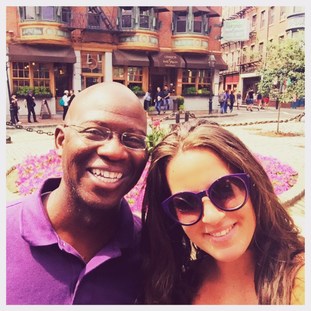
On Biracial Bookworms you'll find articles on multilingualism and diversity, book reviews, book giveaways and amazing reading lists!
Bethany runs the group Read Your World: Teaching Literacy Skills With Diverse Books. Check it out!
Her brand new course Teaching Kids to Read
0-5 is available here.
Bethany runs the group Read Your World: Teaching Literacy Skills With Diverse Books. Check it out!
Her brand new course Teaching Kids to Read
0-5 is available here.
Photo credits: Biracial Bookworms.

